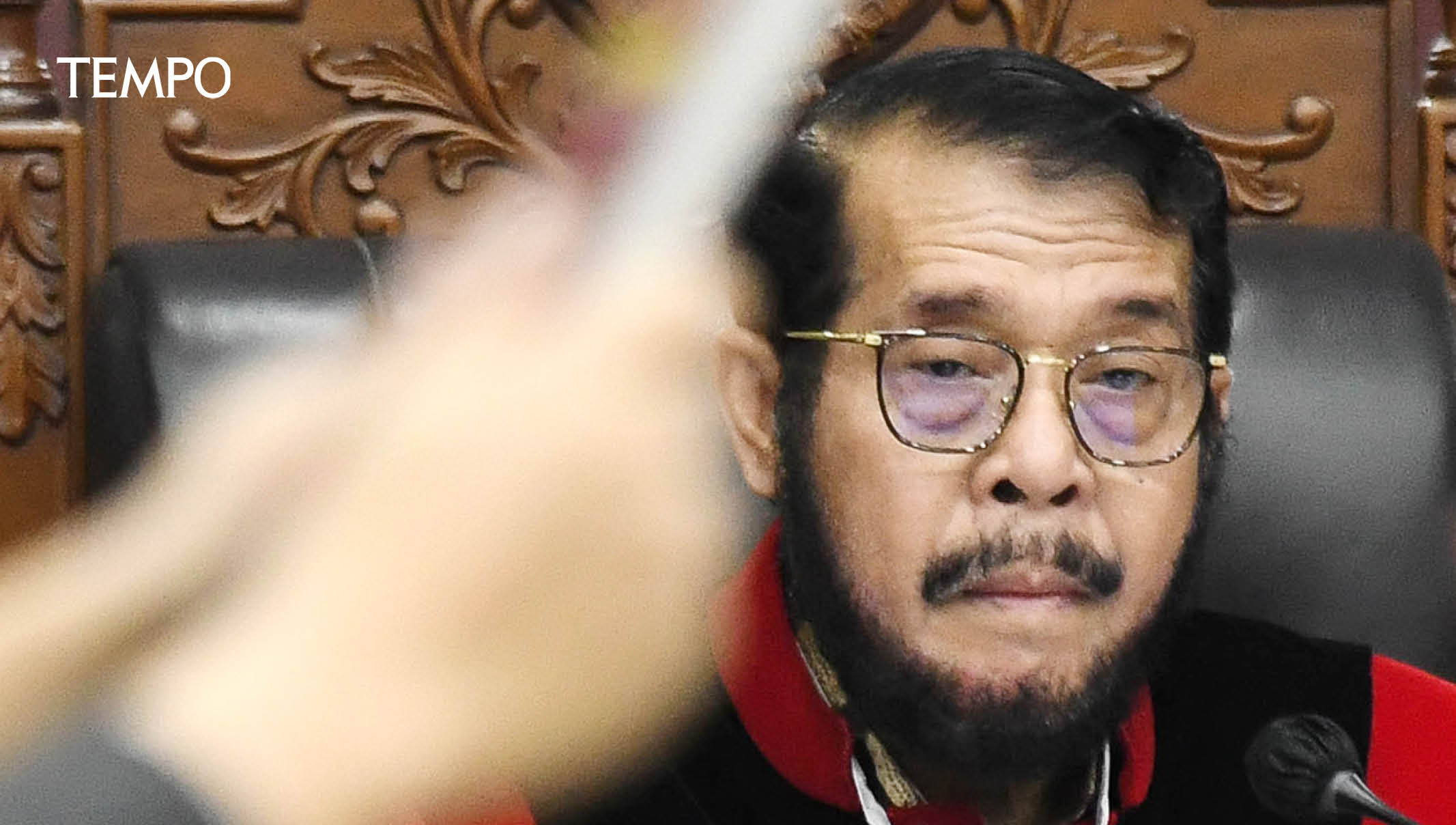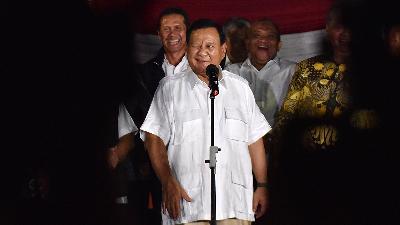A Court that has Lost Its Dignity
Monday, October 23, 2023
The ruling by the Constitutional Court that advantages Gibran Rakabuming Raka was rife with conflicts of interest. The Honorary Council must fire Anwar Usman.
arsip tempo : 174468043941.

THE Constitutional Court ruling that made it possible for the son of President Joko Widodo, Gibran Rakabuming Raka, to run for the vice-presidency showed the ramshackle state of our legal system. In the institution that should safeguard the Constitution, Constitutional Court Chief Justice Anwar Usman did everything he could to ensure that his nephew could participate in the 2024 presidential election.
The Constitutional Court judges granted the legal challenge filed by Almas Tsaqibbirru by changing Article 169 subsection (q) of the General Elections Law stipulating that the president and vice president must be at least 40 years old by adding the clause “or have experience as a regional head at the provincial or regency/city level.” As a result of the granting of this legal challenge, Gibran, who is only 36 years old, can become a candidate in the 2024 presidential election because he is currently the Mayor of Solo.
Almas had no legal reason to challenge this article. The law student at Surakarta University has no connection with the content of his petition. Even if the challenge had been rejected, he would not have lost any of his constitutional rights. His only standing was his claim to be an admirer of Gibran.
The Constitutional Court judges should have rejected this challenge, especially since they had rejected another challenge to the minimum age of presidential and vice-presidential candidates. In many previous cases, the constitutional judges had closely examined the legal standing of the plaintiff — including rejecting challenges if the plaintiffs did not have a clear legal standing. But the judges immediately processed the challenge from Almas.
What is more, Almas’s attorney had already withdrawn the petition on September 26, but the next day he cancelled this withdrawal. From this, we can conclude that the plaintiff was not serious about his challenge. Constitutional Court Regulation No. 2/2021 on the Procedure for Hearing Challenges to Laws clearly states that once a petition that has been withdrawn, it cannot be resubmitted. But rather than issuing a ruling about the withdrawal of the petition, the Constitutional Court simply changed the date of the cancellation of the withdrawal.
The conflict of interest in this case was already apparent long before the ruling was read on October 16. On September 9, in a lecture at the Sultan Agung Islamic University, Semarang, Central Java, Anwar Usman spoke about the importance of having young leaders. His statement to these new students was an indication of his opinion about the case that was currently being handled by the Constitutional Court.
Anwar Usman’s conduct in this case was clearly a violation of the code of ethics. Article 17 of the Judicial Authority Law bans Constitutional Court judges from hearing a case if they or their family have an interest in the ruling. But as well as participating in the ruling, Anwar Usman is also believed to have influenced other judges to find in favor of the challenge.
Furthermore, in their ruling, the constitutional judges added the clause “ever occupied or currently occupying a position through an election, including elections of regional heads” to Article 169 of the General Elections Law. However, this clause was not included in the challenge. This move by the judges clearly exceeded their authority because it meant that they acted like members of the legislature.
The actions of these constitutional judges were at odds with the principles of independence, integrity, appropriateness and competence, in line with a 2018 comparative study conducted by Tom Ginsburg. Ginsburg found reversals of democracy in many countries because of the hijacking of constitutional courts. This was done by controlling the composition of judges, from the appointment to the replacement processes. This hijacking of the Constitutional Court in Indonesia began when the House of Representatives (DPR) dismissed judge Aswanto because he often annulled laws that the DPR had passed.
Given this hijacking, it is difficult to imagine how the Constitutional Court can be a fair referee in resolving any disputes related to the 2024 General Elections. To use the analogy of a soccer game, Constitutional Court judges have become the 12th player in one of the teams.
To stop this crisis worsening, the Constitutional Court Honorary Council must hold an ethics hearing to investigate alleged violations by the judges, including Anwar Usman. Although it cannot overturn his ruling, the Honorary Council could dismiss him. This cleaning up is important in order to restore the authority of the Constitutional Court and to prevent a democratic setback.











